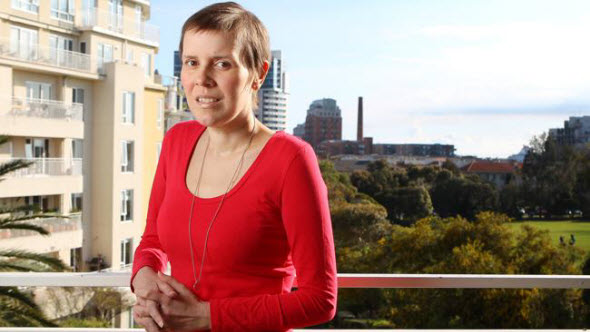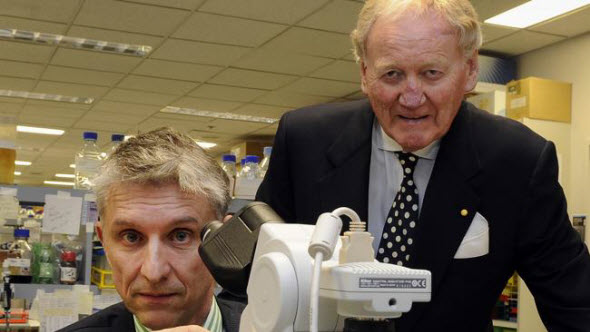Daughter of AFL great Ken Sheldon fighting to cut cancer drug red tape
Published by Hearld Sun, Author Grant McArthur
MELISSA Sheldon doesn’t want anyone else to die waiting for the expensive drugs that saved her life, and has joined the push to cut red tape preventing cancer patients accessing medication.
The daughter of AFL great Ken Sheldon had to raise to raise $140,000 in a fortnight in March to pay for one of the melanoma drugs which saved her life – but which the Pharmaceutical Benefits Scheme had refused to list for a government subsidy.

With the secondary cancer in her brain 95 per cent gone six months after she was in palliative care, the 33-year-old is desperately hoping others will also be saved.
“I knew with my family and friends, we would be able to raise the money, but what is frustrating is that I know other people are not even offered the drugs because the doctors know they will not be able to afford it," Ms Sheldon said.
“It is soul crushing to think that people won’t be offered the chance to live. It is just wrong."
In 2008, skin cancer was found to have spread into Ms Sheldon’s lungs, but she was lucky enough to be placed on a clinical trial of Vemurafenib, which saved her life and was then approved for use as a melanoma treatment.
Grand Prix Chairman Ron Walker lobbies for life-saving cancer drugs
But despite its success, the drug has been rejected twice by the PBS, and is still not subsidised in Australia.
Vemurafenib kept the cancer at bay for 14 months but it then returned in Ms Sheldon’s brain and pelvis, leaving her terminally ill by March.
Her one chance at survival was another new melanoma drug, Yervoy, but again it was not subsidised.
Her father hurriedly brought together 600 people at the Wheelers Hill Hotel to raise $100,000 for the wonder drug.

The drug again saved her life.
In August, Yervoy was listed by the PBS and is now available for $36.10.
The listing would have come too late for Ms Sheldon, and she is lending her voice to that of Grand Prix boss Ron Walker and Australia’s leading oncologists to push for reforms to the PBS.
The Cancer Drugs Alliance is calling for a thorough review of the way cancer drugs are listed on the PBS, as well as a cancer drug fund to provide access to the medications during the two years the review would take.
A similar fund was established in the UK and allows new cancer drugs to be temporarily subsidised while the full economic evaluation is undertaken for a permanent listing.
CDA chair Prof John Zalcberg said PBS delays meant only patients with large financial resources could afford access to many of the new frontline medications, even though the system was established to provide equitable care for all Australians.
“We know examples in some cases where drugs have been available in other parts of the world six years earlier than they are available here," Prof Zalcberg said.
“takes two to three years (to get on the PBS) and, when you have cancer, that is really important. When you have early cancer, you can’t wait two years to stop it, and when you have advanced cancer, life could be cut shorter.
“Increasingly, these drugs are game-changers .?.?. an increasing number of people are getting long-term control of their disease through these drugs, sometimes even cured of their disease, and they’re just not getting access to these drugs.
“It’s not fathomable as to why Australia can’t afford these drugs when we are a modern industrialised country."
